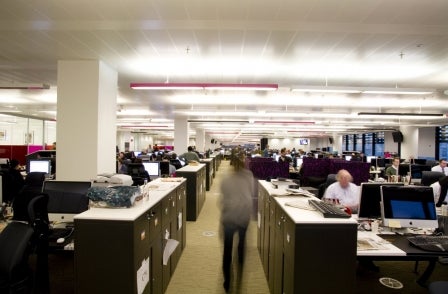
In 2014, then Guardian editor Alan Rusbridger described The Times paywall as a "19th century business model", saying The Guardian’s “open” online system was "light years" better.
But he said it was still difficult to say which system worked better commercially.
Yesterday, Guardian Media Group revealed that it has lost more than £100m over the last year. It has spent £80m of its £840m trust fund and a further £20m has evaporated apparently due to falling investment values.
Meanwhile, The Times and Sunday Times are (as I understand it) in profit.
The paywall is not the only factor. But yesterday’s disastrous news that Guardian News and Media will have to cut 20 per cent of its budget, or £54m, is a blow to its open journalism model.
The Guardian’s alternative to subscriptions, membership, does not appear to have worked.
Devoted as Guardian readers no doubt are, it seems that many balk at the idea of paying £15 a month in exchange for priority booking and a discount on attending Guardian events. The thing they value most, The Guardian’s journalism, is provided for free.
I speak as a reasonably devoted Guardian reader myself. But I rarely pay nowadays to read the The Guardian's print journalism because I have often already seen it online. To use an example, on Friday 27 November I was lying in bed when Simon Hattenstone’s breathtakingly good feature on the death of Tory activist Elliott Johnson popped up on my phone.
It was more than 9,000 words long, but because The Guardian’s free mobile website is well designed it was a pleasure to read the whole thing on screen.
The following day in the newsagent, was I going to spend £2.70 on The Guardian, when I had already read the best thing in it, or £1.50 on The Times which was filled with lots of things I had not yet read?
Email pged@pressgazette.co.uk to point out mistakes, provide story tips or send in a letter for publication on our "Letters Page" blog
